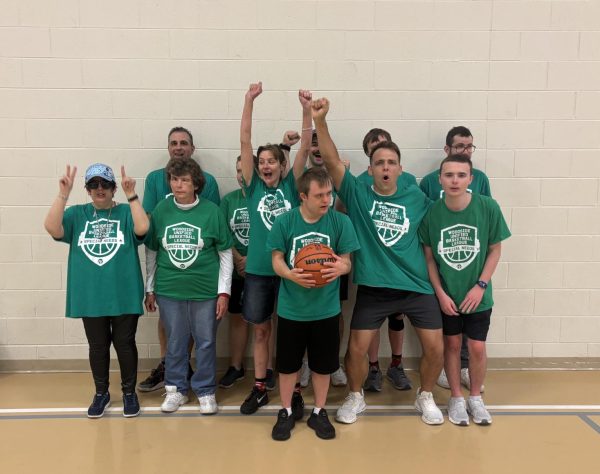Women’s basketball coach fully healthy after 10 years
Ten years ago, on gameday, Women’s Basketball Head Coach Jeff Tungate woke up unable to get out of bed. At the time, he was an assistant coach for Greg Kampe and the men’s basketball team.
After an hour of trying to get out of bed, he finally regained feeling in his legs and made his way to the O’Rena. When he got to Kampe’s office, Kampe told him to go to the emergency room immediately.
The doctors told Tungate he would need surgery on his collapsing spinal disks within the week. What they didn’t tell him is that the surgery would make the next 10 years of his life incredibly difficult.
While spending his 40th birthday in the hospital, Tungate knew something was wrong.
“It was supposed to be a two-and-a-half-hour surgery, and it took over five hours,” Tungate said. “I was in the hospital for four or five days, and when I got home, I literally had to be carried into my house. I knew something wasn’t right.”
For the next two years, Tungate’s ankles would swell “like balloons” and he would have no energy by the end of the day. He visited multiple back specialists, who all said his spinal fusion surgery was one of the worst they had ever seen.
“I had to get it fixed, and I had a guy for the second [surgery] do a really good job,” he said. “I could feel my legs again, and I felt really good. I actually walked into my house when I got back — I was in the hospital for maybe two days.”
There was a catch, however. The surgeon told Tungate that he would have to have a second surgery in approximately 10 years.
“Sure enough, eight years later, I needed that one more,” Tungate said.
Last season, Tungate was forced to sit out almost half of the season after his final surgery. In his absence, Associate Head Coach Ke’Sha Blanton took over as acting head coach.
The Golden Grizzlies finished 6-12 in the Horizon League and lost in the first round of the Horizon League tournament to the Milwaukee Panthers.
While it was tough for Tungate to watch his team from a TV screen, he expressed gratitude for his coaching staff for the way they handled the unexpected absence.
“Our staff and Ke’Sha specifically did a phenomenal job,” he said. “When they signed on board to come be a part of the program, that wasn’t part of the plan. They did a really good job. It made recovery a lot easier knowing the team was in good hands.”
An added wrinkle to the recovery Tungate needed was the COVID-19 pandemic hitting. His surgery was Feb. 10, almost a month before the world went into lockdown.
“COVID[-19] came and I couldn’t go get rehab because all of the rehab centers were closed,” Tungate said. “I had to be creative and call some friends and come up with my own rehab program.”
After trial and error, Tungate figured out a program that worked for him and got him back to normal.
“This is the best I’ve felt since that second surgery,” he said. “I lost 31 pounds, I’ve been exercising — I got my energy back. I feel really good. I told my players I’d been feeling like this for three years, so for our seniors this is the first time they’ll have ever seen me like this.”
Throughout his rehab, his family and friends helped him get back to normal. He had to have friends carry him into his house and upstairs, and for two weeks after his surgeries he could not go downstairs.
His wife, Kelley, then had to do everything around the house. His two sons, Jordan and Cooper, had to watch their dad go through a lot of physical pain.
“They’ve been so supportive during the entire time,” Tungate said. “For my boys, its tough to see your dad go through something like that. Just having them around was a big thing for me.”
For 10 years, Tungate was uncomfortable. A mantra his staff tells the players is “learn to be comfortable being uncomfortable.” Because of his back, Tungate’s staff had to learn to live by that mantra as well.
“I think it was a great experience for our staff,” he said. “It was a chance for them to do some great things and get some great experience.”
Despite the positives of his absence, though, Tungate is looking forward to not having crippling pain and balloon-sized ankles. Unlike the second surgery eight years ago, this most recent one does not come with a 10-year expiration.
“I’ve got four rods and eight screws back there,” he said. “I’m good, the entire back is all set and there won’t be another issue again. That’s why I’m so excited to have this behind me.’”
In addition to increased physical health and higher energy levels, Tungate has also gained a sense of humor about the metal in his back.
“I joke with my son — he wants me to come visit. I tell him ‘just put a magnet outside his window and I’ll be there in a second,’” he said.



